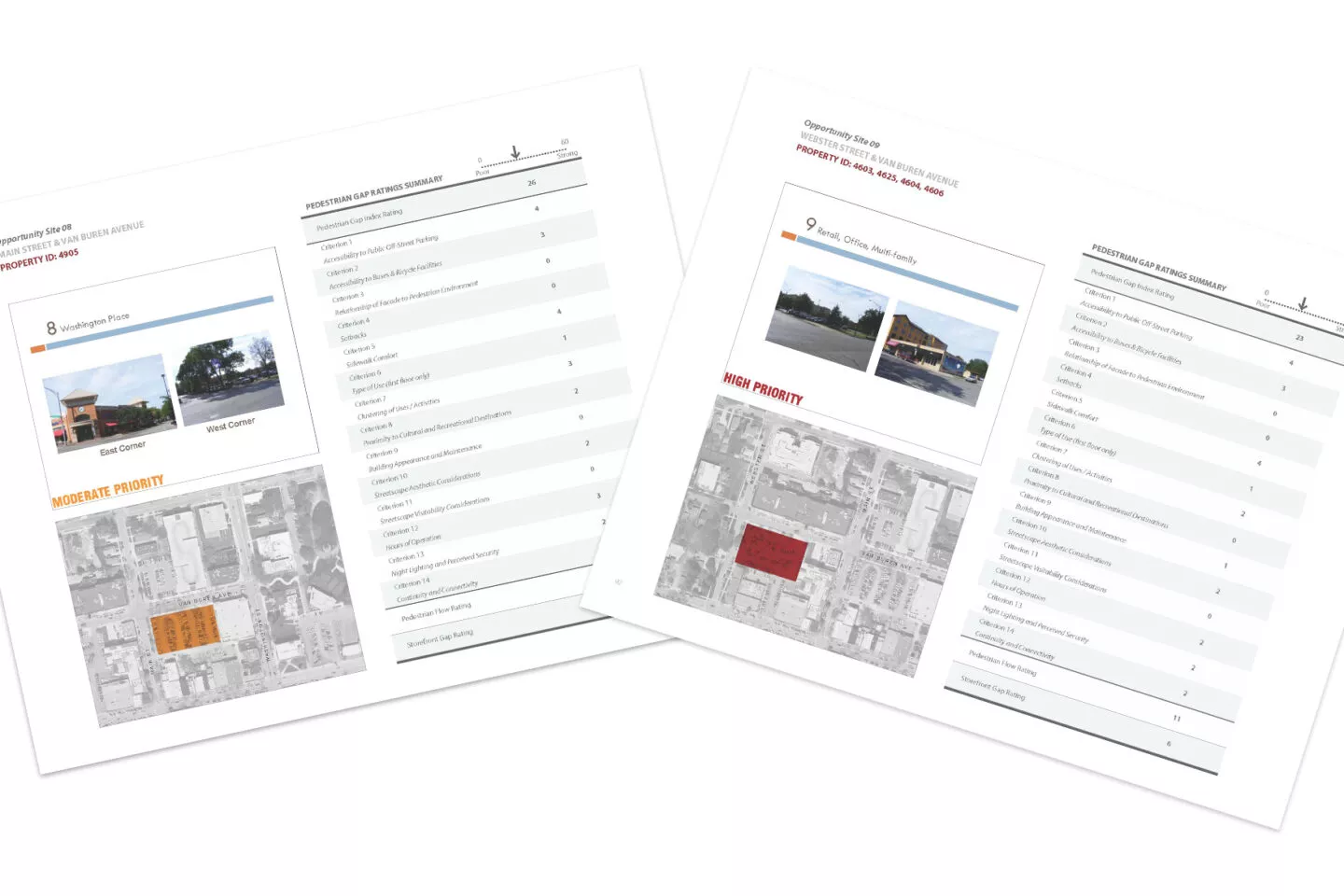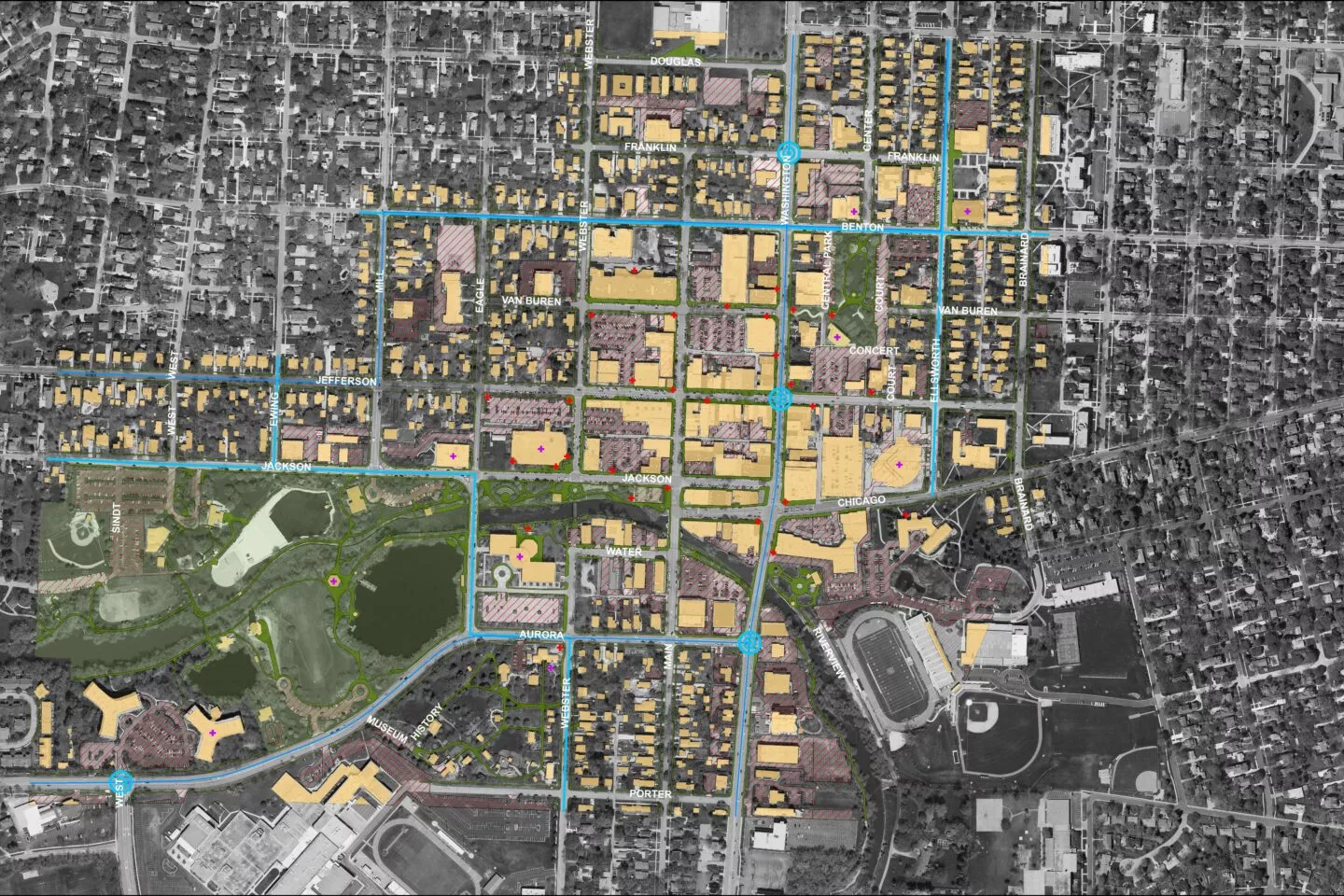Pedestrian Gap Analysis
Client
City of Naperville, Illinois
Location
Naperville, IL
The City of Naperville retained SCB to conduct a pedestrian gap analysis of their 115-acre downtown district. The analysis evaluated the existing built environment to identify pedestrian flow gaps and critical storefront gaps that create “pedestrian dead zones,” thus impacting the success of the adjacent businesses and the vitality of the overall downtown.
The project team approached this work with the belief that two of the most important features of a pedestrian-friendly built environment are 1) a mix of uses with 2) safe and interesting pedestrian walking routes that connect them. Based on this approach, a set of 14 measurable criteria for evaluating “pedestrian dead zones” in Downtown Naperville became the primary tool for quantifying and systemizing the assessment of properties in order to reveal characteristics that either support or discourage pedestrian activity. Quality of the pedestrian experience criteria were developed and analyzed in conjunction with a database of properties with parcel, property address, and tenant information. All properties within the study area were surveyed and rated according to the 14 criteria, allowing the project team to identify properties that need particular types of improvements and further enhancements to the downtown area’s pedestrian vibrancy. In addition to providing a score for each of the 14 qualitative criteria, the project team prepared a composite score to indicate the “Ped-Gap Index” of each property.
A diverse set of criteria was used by the team to evaluate the pedestrian realm of Downtown Naperville’s core retail district, including access to public parking facilities, proximity to public transportation or bike facilities, and access to cultural destinations. One of the key cultural attractions that the team considered in the study was the Century Art Walk public art initiative. The team recognized art as a key component in supporting retail traffic, providing education about the history of Naperville to visitors, and adding to the overall appeal of the downtown. Based on the results of the analysis, a list of research topics was generated with the goal of exploring comparable downtowns to mine unique ideas, actions, approaches, and strategies that might be appropriate for Naperville to consider when addressing critical storefront and pedestrian flow gaps. The project was honored by APA Illinois with an award in the Best Practices category in 2010.



